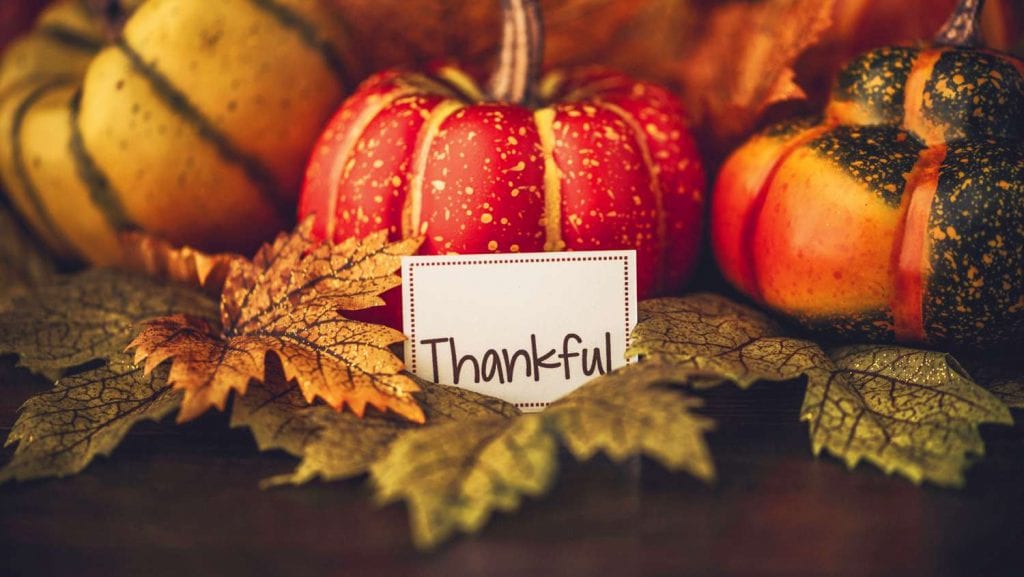by Oasis Wellness Partners on November 23, 2020

Thanksgiving is usually a holiday filled with family and friends—maybe you travel to see relatives, or people some to see you. Maybe you host a Friendsgiving each year, or take turns hosting it with a revolving crew of neighbors and community members. Maybe you help at a local food kitchen each Thanksgiving. But whatever your usual routine is, this year, it is going to look different.
While change is a difficult thing to process, and while many of us will be missing family and friends, it is still an important time to remember what we are grateful for, and to practice gratitude. This can help us get through a challenging time, and is good for our health.
According to a recent study, “Grateful people experience fewer aches and pains and report feeling healthier than other people. Also, grateful people are more likely to take care of their health. They exercise more often and are more likely to attend regular check-ups, which is likely to contribute to further longevity.
Gratitude also improves psychological health. It reduces a multitude of toxic emotions, from envy and resentment to frustration and regret. According to Robert A. Emmons, professor of psychology at University of California, Davis and a leading scientific expert on the science of gratitude, “the practice of gratitude can lower blood pressure, improve immune function and facilitate more efficient sleep. Gratitude reduces lifetime risk for depression, anxiety and substance abuse disorders, and is a key resiliency factor in the prevention of suicide.” Emmons believes gratitude works because it allows individuals to celebrate the present and be an active participant in their own lives. By valuing and appreciating friends, oneself, situations and circumstances, it focuses the mind on what an individual already has rather than something that’s absent and is needed.
Gratitude is also associated with higher levels of good cholesterol (HDL), lower levels of bad cholesterol (LDL), and lower systolic and diastolic blood pressure, both at rest and in the face of stressful situations. Being grateful also has positive benefits on sleep quality. In a recent study, gratitude was related to increasing positive thoughts, and reducing negative ones, at bedtime. This then improved sleep by allowing participants to doze off faster and sleep longer and better.
Thanksgiving is a great opportunity to remind us of this important and beneficial practice of experiencing and expressing gratitude so that we can be inspired to continue this behavior all year long. Think about what gratitude means to you. How can you count your blessings this year?
These are some questions to ask yourself if you are struggling to find things to be grateful for this year. We have been busy hosting a Thanksgiving Food Drive for a local food pantry, and plan on hosting a soap and paper good drive for Christmas. These are things to focus on when it feels hard to find reasons to be grateful. How are you focusing on gratitude this year? Leave a comment and let us know!